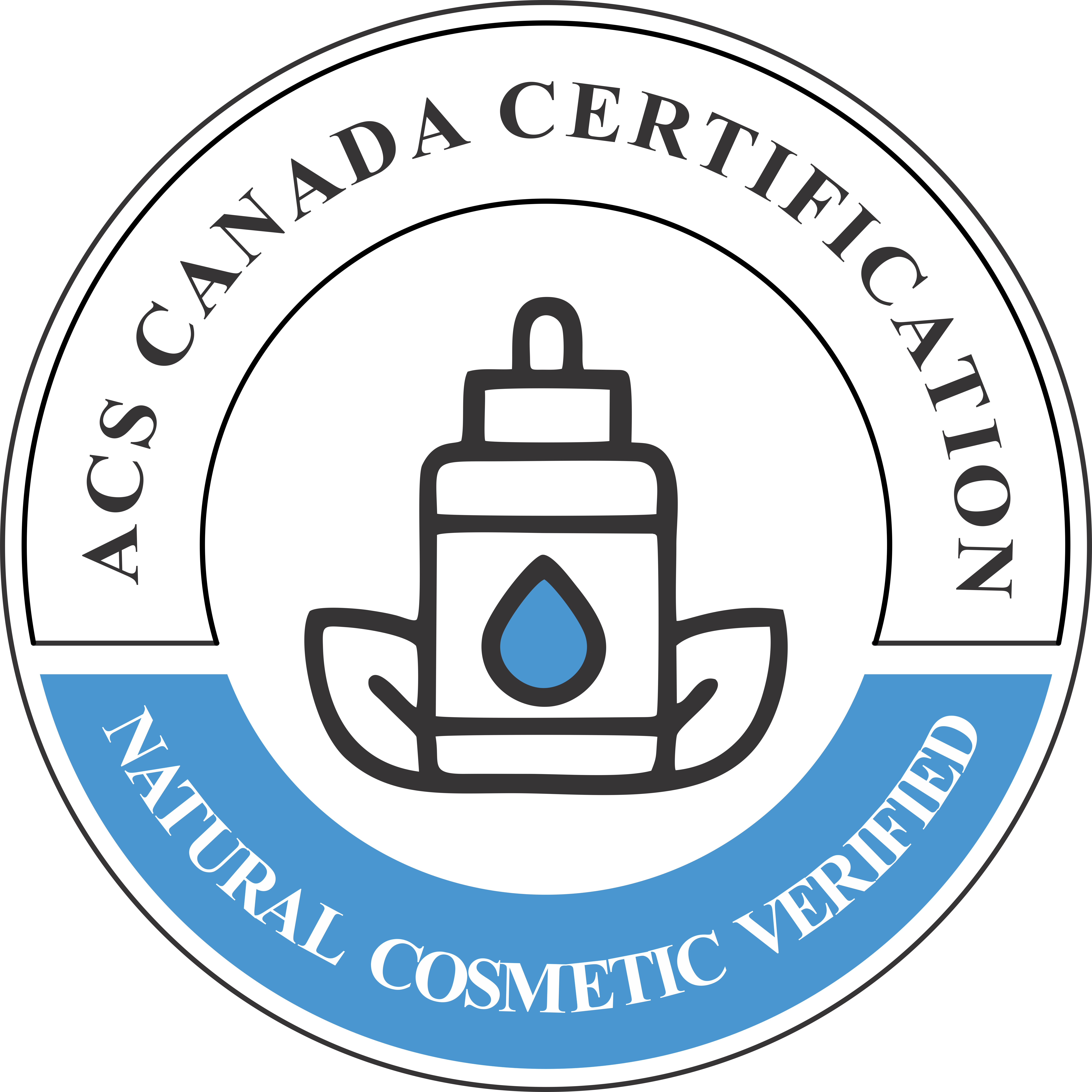NATURAL COSMETIC CERTIFICATION

COSMETIC PRODUCTS
The focal point in the realm of natural cosmetics centers around the precise definition of "NATURAL." According to the Merriam-Webster dictionary, "NATURAL" is described as something that exists in nature and is not synthetically created or induced by human activities. It originates from nature and contains no additional substances or chemicals, remaining free from any artificial additives.
The antithesis of "NATURAL" is often expressed as "ARTIFICIAL," signifying that which is not natural or genuine but rather crafted, manufactured, or contrived to mimic something found in the natural world.
In the domain of cosmetic sciences, the definition of "Natural Cosmetics" embraced by ACS cosmetic experts is more precise. It categorizes natural cosmetics as those comprising a minimum of 95% natural ingredients. This definition unequivocally excludes heavy metals, chemical substances, or derivatives from petroleum or oil.
The impetus behind the preference for natural cosmetics is noteworthy. As reported by CNN, Canada has taken the lead in the global surge of interest in natural skincare. This shift in consumer behavior involves a pivot away from products containing harsh chemicals, with a discerning preference for sourcing solutions from natural, plant-based ingredients to address common skincare concerns. Canada's natural resources, ranging from the pristine Arctic tundra to freshwater lakes, clean mountain air, and ancient boreal forests, position the country as a prime producer of some of the finest organic and natural skincare brands.
NATURAL PRODUCT APPROVAL PROCESS
The process of certifying a natural cosmetic product hinge on rigorous sampling and testing conducted in ILAC-ISO 17025 accredited laboratories. These specialized cosmetic laboratories carry out meticulous examinations of the product samples in accordance with ACS standards and product specifications. Subsequently, a comprehensive report detailing the outcomes of these tests is submitted to ACS for evaluation. ACS's technical team meticulously reviews the results and conducts comparisons against the natural requirements. In cases where the results fail to align with the stipulated natural criteria, a non-conformities report is furnished to the applicant. Conversely, if the test results meet the natural standards, a natural certificate is conferred upon the manufacturing company or producer, and the coveted natural product logo is awarded to the holder.
The advantages of obtaining ACS Canada Natural Approval Certification are manifold:
1. International Recognition: Your natural products gain global recognition and credibility.
2. Documented Verification: You receive supporting documentation and records, including test reports from international accreditation laboratories adhering to ISO 17025-ILAC-IAF standards.
3. Global Market Access: The certification opens doors to worldwide marketing and sales, expanding the reach of your natural products.
4. Quality Assurance: By adhering to the rigorous natural certification standards, you ensure the quality and authenticity of your natural products, instilling confidence in clients and consumers alike.
Training at ACS Canada
ACS employs accelerated learning methods to ensure a comprehensive grasp of all certificates. Our approach involves contextualizing your learning through a wide array of options, including classroom instruction, workshops, as well as interactive and online sessions.
NATURAL COSMETIC CERTIFICATION Training - 1
GOOD LABORATORY PRACTICE

GLP IN COSMETIC INDUSTRY
The aim of this course is to provide delegates with the knowledge and skills required to understand requirements and documentation in cosmetic testing laboratories. Assessment: MCQ based Assessment to Pass the Course and obtain your qualification of GLP requirements and documentation Prior Knowledge Requirements: Idea of GLP requirements in cosmetic laboratories. CURRICULUM GLP BASICS AND […]
More About This CourseNATURAL COSMETIC CERTIFICATION Training - 2

ISO 22716 INTERNAL AUDIT
The aim of this course is to teaches the principles and practices of effective first and second-party audits in accordance with ISO 22716- GMP in cosmetic industry
More About This CourseNATURAL COSMETIC CERTIFICATION Training - 3
Design of Experiment

Design of Experiment (DOE)
Design of Experiment (DOE) is a powerful statistical technique for improving product or process designs and solving process or production problems. DOE defines control changes to input variables in order to find cause and effect relationships with a minimum sample size. When analyzing a process, experiments are often used to evaluate which process inputs have […]
More About This Course
